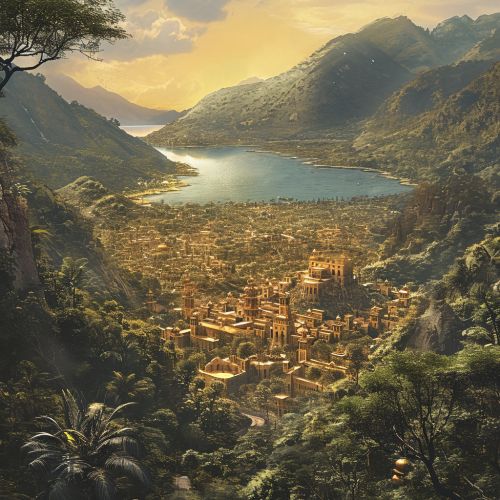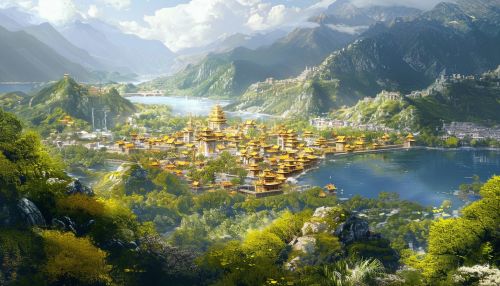El Dorado
Introduction
El Dorado, often translated as "The Golden One", is a term that has evolved over time from being associated with a legendary tribal chief of the Muiscas, a native people of the Andes in present-day Colombia, to a city, and eventually to a province or country of fabulous wealth. The legend has its roots in the 16th and 17th centuries, during the era of exploration and colonization by European powers.


Origin of the Legend
The origin of the El Dorado legend can be traced back to the tradition of the Muisca people, who would cover their new chief in gold dust during his initiation rites. The chief, referred to as the zipa, would then dive into Lake Guatavita, washing off the gold and offering it to the gods. This ritual was witnessed by Spanish conquistadors and their accounts of the ceremony, combined with the indigenous people's stories, gave birth to the legend.
European Exploration and the El Dorado Myth
The El Dorado myth greatly influenced the European explorers of the 16th and 17th centuries. The tales of a city or a kingdom filled with gold and precious stones led many expeditions into the heart of South America. Explorers such as Gonzalo Jimenez de Quesada, Sebastian de Belalcazar, and Sir Walter Raleigh conducted various expeditions in search of El Dorado, often resulting in the discovery and colonization of new lands.
Impact on Cartography
The El Dorado legend had a significant impact on the cartography of the era. Many maps from the 16th and 17th centuries depict El Dorado in various locations. The legend influenced the naming and exploration of several regions, including the Orinoco and Amazon basins. The elusive nature of El Dorado and its shifting location on maps over time reflects the explorers' constant search for the fabled city.
El Dorado in Literature and Popular Culture
El Dorado has been a popular theme in literature and popular culture, often symbolizing the ultimate quest or an unattainable goal. It has been depicted in various forms, from a city of gold in Voltaire's "Candide" to a metaphor for spiritual enlightenment in Edgar Allan Poe's poem "El Dorado". Its allure continues to inspire works of fiction, film, and music.
Conclusion
While the physical city of El Dorado may never have existed, the legend has had a profound impact on history, influencing exploration, colonization, and cultural perceptions of wealth. It continues to captivate the imagination, serving as a symbol of unattainable wealth and the human quest for discovery.
